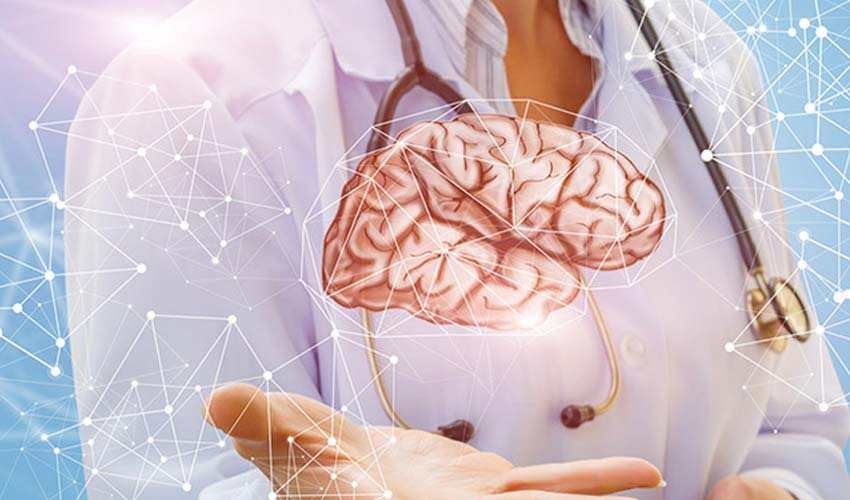Neurology is one of the most rapidly advancing fields in modern medicine. Given that the human brain is the most complex organ, diagnosing and treating neurological disorders necessitates precision, advanced equipment, and highly specialized care. In recent years, technology has significantly transformed the detection, management, and treatment of neurological conditions, with the most notable changes being visible in leading neurology hospitals in Delhi.
From AI-powered brain imaging and robotic-assisted surgery to tele-neurology consultations and wearable monitoring devices, technology is making neurological care faster, more accurate, and more accessible than ever before.
Understanding the Scope of Neurology
Neurology covers a wide range of disorders affecting the brain, spinal cord, and nervous system. These include common conditions like migraine, epilepsy, and stroke, as well as complex disorders such as Parkinson’s disease, multiple sclerosis (MS), dementia, and neuropathies.
Given the intricacy of the nervous system, even minor diagnostic errors can have major consequences. That’s why modern neurology hospitals in Delhi are leveraging state-of-the-art technologies to enhance diagnostic accuracy and ensure personalized treatment for every patient.
The Technological Revolution in Neurological Diagnosis
The first step in treating neurological disorders is accurate diagnosis, an area where technology plays a game-changing role. Today’s hospitals use advanced imaging and diagnostic tools such as:
- 3 Tesla MRI Scanners: These high-resolution imaging machines provide detailed views of the brain and spinal cord, helping doctors identify structural abnormalities and subtle lesions.
- CT Scans and PET Scans: Essential for detecting strokes, brain tumors, and degenerative diseases.
- Electroencephalography (EEG): Measures electrical activity in the brain to diagnose epilepsy and sleep disorders.
- Nerve Conduction Studies (NCS) and Electromyography (EMG): Help detect nerve and muscle dysfunctions.
- Functional MRI (fMRI): Maps brain activity by measuring blood flow, often used in pre-surgical planning.
These technologies allow neurologists to pinpoint the exact cause of symptoms, enabling early intervention and minimizing long-term complications.
Robotic Assistance and Minimally Invasive Neurosurgery
One of the most remarkable developments in neurology is the use of robotics and computer-guided systems in brain and spine surgeries.
Modern neurology hospitals in Delhi, like Venkateshwar Hospital, are increasingly adopting robotic-assisted surgical platforms that enhance precision, reduce surgical risks and improve recovery times. Robotic systems allow neurosurgeons to operate through tiny incisions with unmatched accuracy, minimizing trauma to healthy tissues.
Similarly, neuronavigation systems act like GPS for the brain, providing real-time 3D maps during surgery to help surgeons reach deep-seated lesions safely. This technology has proven invaluable for treating conditions like brain tumors, aneurysms, and spinal deformities.
Artificial Intelligence (AI) in Neurology
Artificial Intelligence has emerged as a cornerstone of modern healthcare, and neurology is one of the fields benefiting most from it. AI algorithms can analyze thousands of brain scans in seconds, identify patterns invisible to the human eye, and even predict disease progression.
Some key applications include:
- Early Detection of Alzheimer’s and Parkinson’s Disease: AI tools detect subtle changes in brain scans years before symptoms appear.
- Stroke Prediction and Management: Machine learning models assess risk factors and help doctors make faster treatment decisions during emergencies.
- Seizure Detection Systems: AI-powered EEG monitors can alert doctors when abnormal activity suggests an impending seizure.
AI-driven analysis not only enhances clinical precision but also supports doctors in creating personalized treatment plans tailored to each patient’s unique condition.
Tele-Neurology: Bringing Specialist Care Closer to Home
Delhi’s neurological hospitals are also using technology to make expert care more accessible through tele-neurology services. Patients living in remote areas can now consult leading neurologists online, share diagnostic reports digitally, and receive treatment recommendations without needing to travel.
This approach is particularly beneficial for individuals recovering from stroke, epilepsy, or movement disorders who require frequent follow-ups.
Wearable Devices and Remote Monitoring
Another technological breakthrough transforming neurology is the use of wearable medical devices that continuously monitor patients’ vital signs and neurological activity.
Examples include:
- Smartwatches that track heart rate and detect early signs of stroke or arrhythmia.
- EEG headbands that monitor seizure activity in epilepsy patients.
- Motion sensors are used to study tremors in Parkinson’s disease.
These devices collect real-time data, allowing doctors to make timely interventions and adjust treatment plans based on the patient’s progress.
Rehabilitation Through Technology
Post-treatment rehabilitation is a vital part of neurological recovery, and here too, technology is making a huge difference. Delhi’s leading hospitals now use virtual reality (VR) and robotic-assisted physiotherapy to help patients regain mobility and cognitive function.
For example:
- VR games improve balance and coordination in stroke survivors.
- Robotic exoskeletons support patients during gait training.
- Computer-based cognitive therapy enhances memory and focus in patients recovering from brain injuries.
Such innovations make rehabilitation more engaging and effective, ensuring that patients regain their independence more quickly.
Data Analytics and Predictive Care
Big data analytics is helping hospitals predict health risks and manage chronic neurological conditions more effectively. By analyzing patient histories, lifestyle data, and diagnostic results, neurologists can identify early warning signs of diseases like dementia or multiple sclerosis and take preventive action.
This data-driven approach enables neurology hospitals in Delhi to transition from reactive treatment to proactive care, thereby improving long-term patient outcomes.
Conclusion
Technology is reshaping the future of neurological healthcare, making diagnoses faster, treatments safer and recoveries smoother. Delhi’s top neurology hospitals are at the forefront of this transformation, combining medical expertise with innovation to deliver world-class care.
As technology continues to evolve, patients can look forward to more accurate, efficient, and personalized neurological care, ensuring a brighter future for those battling disorders of the brain and nervous system.
